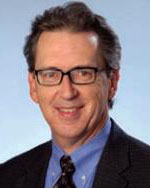Another CADx Program With Good but Limited Performance for Diminutive Colorectal Polyps
Douglas K. Rex, MD, MASGE, reviewing Houwen BB, et al. Endoscopy 2023 Jan 9.
This study describes the prospective testing of a computer-aided diagnosis (CADx) system called POLyp Artificial Recognition (POLAR), developed for real-time diagnosis of diminutive colorectal polyps. The study was performed in 8 Dutch and 1 Spanish hospital with comparison of POLAR performance to that of 20 endoscopists.
The primary endpoint was differentiation of diminutive adenomas and sessile serrated lesions (SSLs) from hyperplastic polyps. The POLAR system utilizes up to 3 images obtained by narrow-band imaging to reach diagnosis.
POLAR reached a high-confidence diagnosis in 98.3% of lesions. The POLAR system correctly diagnosed 305 of 341 neoplastic lesions and 31 of 82 nonneoplastic lesions. The accuracy, sensitivity, and specificity of POLAR were 79.4%, 89.4%, and 37.8%, respectively, versus 83%, 92.4%, and 43.9% for the endoscopists. The sensitivity of SSL diagnosis was 17.1% with POLAR versus 58.6% by the endoscopists; leaving the SSLs out did not significantly change the performance numbers.

COMMENTAcross a number of trials, CADx programs are producing highly accurate diagnoses comparable to those made by endoscopists, but computer-aided diagnoses are generally not superior. At these performance levels, CADx could have clinical benefit for lower-performing endoscopists, but a breakthrough in understanding or technology is needed for CADx to make a really important impact.
Note to readers: At the time we reviewed this paper, its publisher noted that it was not in final form and that subsequent changes might be made.
CITATION(S)
Houwen BB, Hazewinkel Y, Giotis I, et al. Computer-aided diagnosis for optical diagnosis of diminutive colorectal polyps including sessile serrated lesions: a real-time comparison with screening endoscopists. Endoscopy 2023 Jan 9. (Epub ahead of print) (https://doi.org/10.1055/a-2009-3990)
